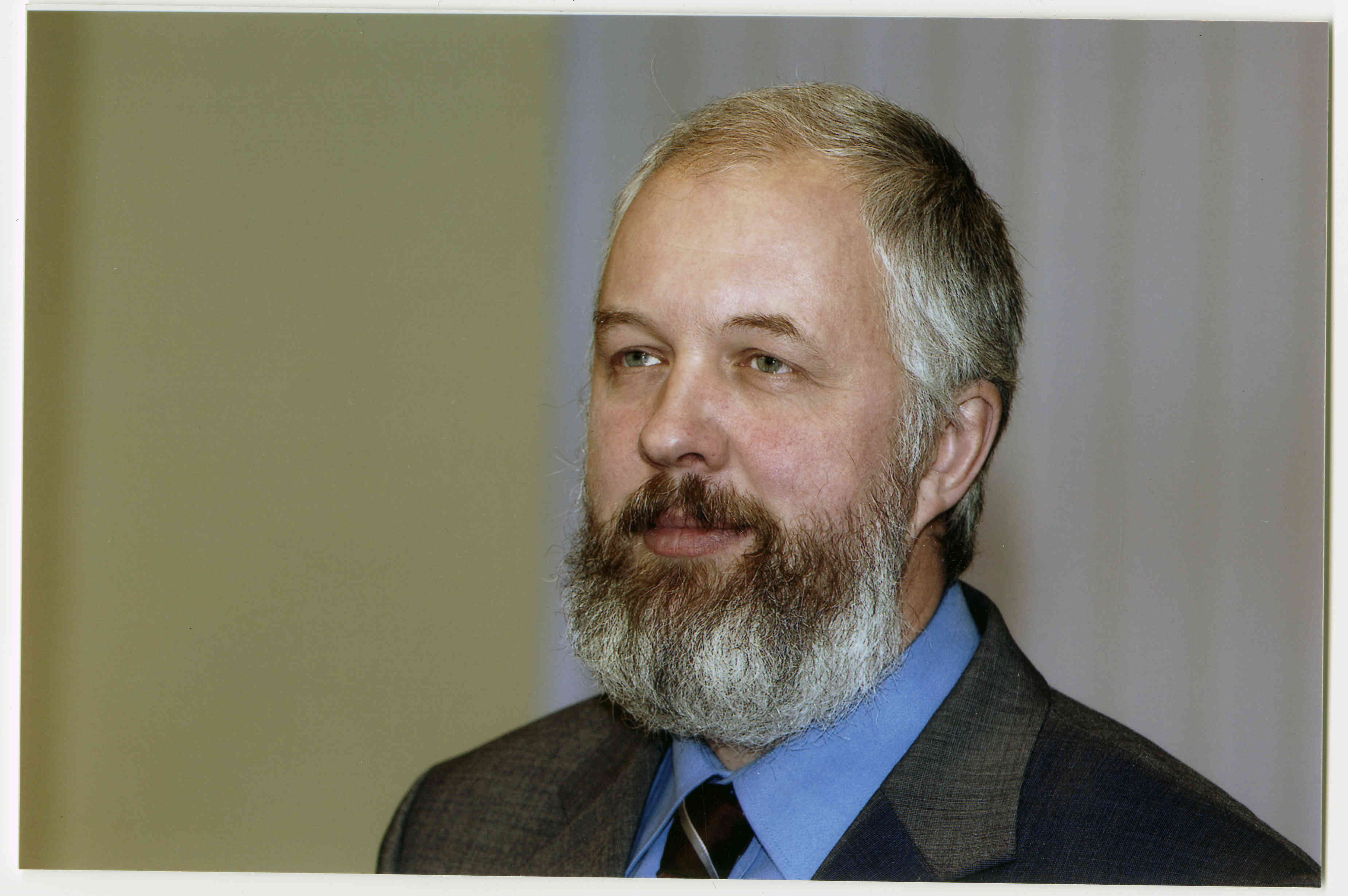
Aado Lintrop
Aado Lintrop (b. 9. VI 1956) is a scholar of folklore and religion, and a writer.
Lintrop was born in Tallinn into a working-class family. He attended several schools in Tallinn and graduated from number 37 secondary school there. From 1978 to 1984 and from 1994 to 1995 Lintrop studied Estonian philology at the University of Tartu, graduating from the university with a master’s degree in Estonian and comparative folklore. In 2000 he gained his doctorate in Estonian and comparative folklore from the University of Tartu. Lintrop worked at the Tallinnfilm studio in 1976-1977 as an assistant camera operator, from 1979 to 1990 at the National Museum of Estonia as a cameraman and photographer, and from 1990 to 2000 at the Institute of Estonian Language as a technical and research assistant. Since 2000 he has been a senior researcher at the Estonian Literary Museum. He has conducted lecture courses on folk religion in the faculty of theology at the University of Tartu. He sings in the Setu men’s choir Liinatśuraq in Tartu. Lintrop belongs to the Estonian Writers’ Union since 2010.
Lintrop made his debut with poems in the newspaper of the Tartu State University in 1979. His first poetry collection, Asuja (‘Dweller’), appeared in 1985. It earned a positive reception from the critics. The poems are basically philosophical and intuitive. Thereafter the author concentrated on folklore research. In 2000 the second collection, Sõnaristi (‘Wordcrosses’) appeared. Some poems in it have been compared to the poetry of Heiti Talvik and Uku Masing, but also to that of younger contemporaries such as Doris Kareva or Hasso Krull. Lintrop’s later poetry is concerned with Buddhism. In this way he is continuing a trend in Estonian poetry earlier represented by Ernst Enno and Uku Masing.
Lintrop has also written books of prose, such as a diary of the time he spent in Italy, Imeline koda, (‘A Wonderful Home’, 2014), and travel books about the Himalayas (Tõusta mägede õlule. Luuletaja Himaalajas – ‘To Rise onto the Shoulders of Mountains. A Poet in the Himalayas’ – 2018) and Spain (Minagi olin Jaakobiteel – ‘I Was on the Santiago Route Too’ – 2020). Apart from the immediate experiences of travel, Lintrop’s travel diaries embrace folklore, philosophy and religion, in essay-style meditations.
He has translated poems from Russian and Finnish, and folk poetry from Khanty and Mansi.
L. P. (Translated by C. M.)
Books in Estonian
Poems
Asuja. Tallinn: Eesti Raamat, 1985, 47 lk.
Sõnaristi. Tartu: Ilmamaa, 2000, 67 lk.
Annapurna. Tartu: Ilmamaa, 2010, 127 lk.
Õhtud sõidavad õue. Tartu: Ilmamaa, 2011, 135 lk.
Uksed ja inimesed. Luulepäevik talv 2010 – sügis 2011. Tartu: Ilmamaa, 2012, 149 lk.
Orus ja mäel. Tartu: Ilmamaa, 2013, 117 lk.
Päev on ulakas plika. Luulet aastaist 2013-2015. Tartu: Ilmamaa, 2016, 70 lk.
Söepõletaja. Luulet aastatest 1984-2018. Aadami (Kastre vald): Kamsuraamat, 2018, 116 lk.
Non-fiction
Imeline koda. Tartu: Ilmamaa, 2014, 188 lk. [Päevik Mazzanost.]
Tõusta mägede õlule. Luuletaja Himaalajas. Tallinn: Go Group, 2018, 439 lk.
Minagi olin Jaakobiteel. Tartu: Ilmamaa, 2020, 187 lk.
Folklore studies
Udmurdi rahvausundi piirjooni. Tartu: Tartu Ülikool, 1993, 110 lk.
Šamaaniraamat. Tartu: Ilmamaa, 1995, 180 lk.
Udmurdi usund. Tartu: Eesti Rahva Muuseum, 2003, 256 lk.
Loomisaja lood. Uurimusi ja tõlkeid Põhja-Euraasia rahvaste usundist. Tartu: Eesti Kirjandusmuuseumi Teaduskirjastus, 2014, 327 lk.
Loomisaja laulud. Uurimusi eesti rahvalaulust. Tartu: Eesti Kirjandusmuuseumi Teaduskirjastus, 2016, 160 lk.



